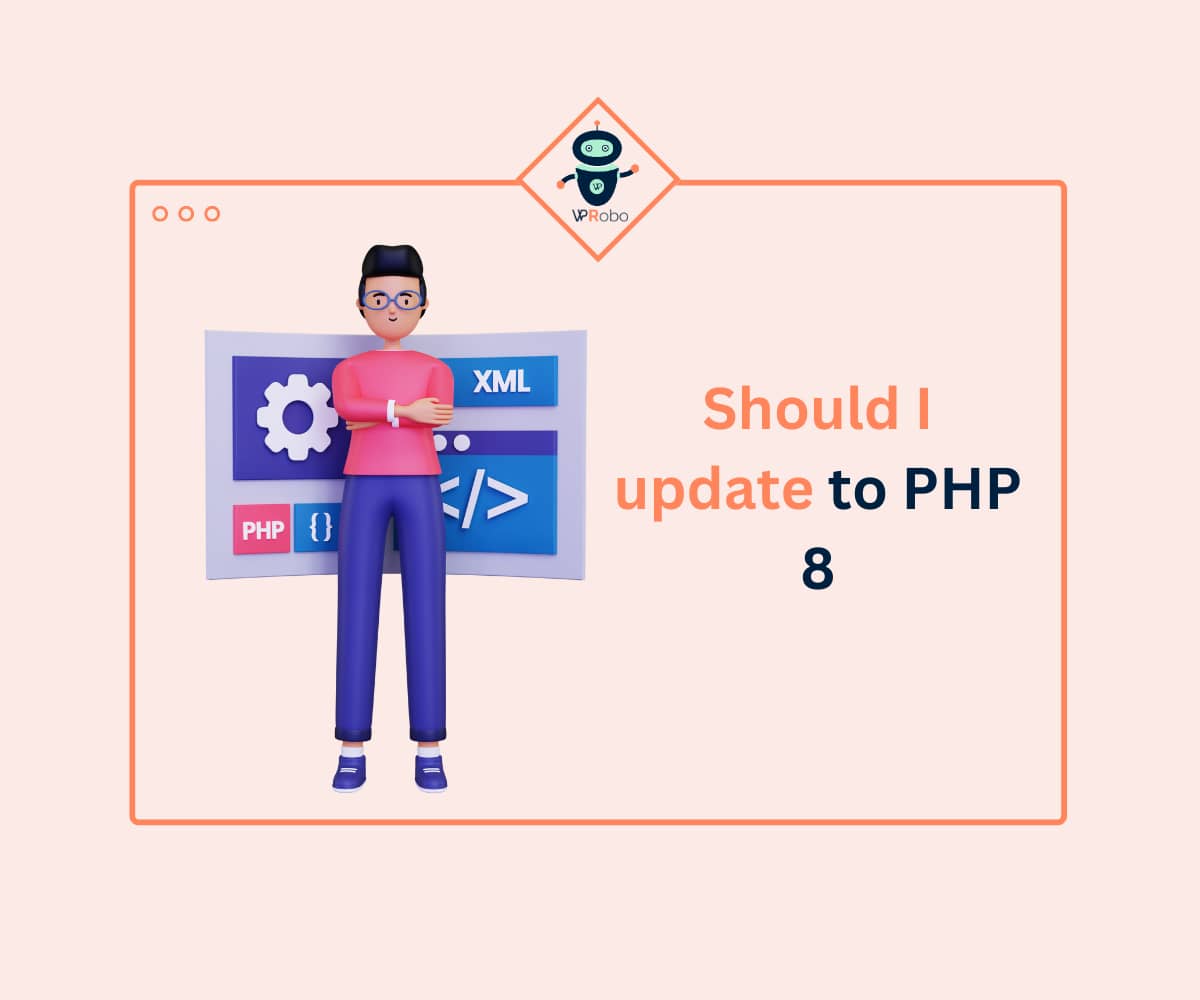Should I update to PHP 8?
PHP is a widely used server-side scripting language that powers a significant percentage of websites and web applications. Since its initial release in 1995, PHP has evolved through several iterations, with the latest release being PHP 8. As with any major release of a programming language, developers are left wondering whether they should upgrade to PHP 8. In this article, we will explore all the aspects of upgrading to PHP 8 and provide a developer prospectus to help you make an informed decision.

What’s new in PHP 8?
Before diving into the pros and cons of upgrading to PHP 8, let’s take a quick look at some of the new features and improvements that come with this release. Here are some of the most notable changes in PHP 8:
JIT Compiler: PHP 8 introduces a Just-In-Time (JIT) compiler, which can significantly improve the performance of PHP code. The JIT compiler can optimize frequently executed code paths and reduce the overhead of function calls, resulting in faster execution times.
Union Types: PHP 8 introduces support for union types, which allows developers to specify that a variable can hold multiple types of values. This can help improve code clarity and reduce the likelihood of errors.
Named Arguments: PHP 8 introduces support for named arguments, which allows developers to specify arguments by name instead of position. This can help improve code readability and reduce the likelihood of errors when calling functions with many parameters.
Attributes: PHP 8 introduces support for attributes, which allows developers to add metadata to classes, methods, and functions. Attributes can be used to annotate code with information such as API documentation, performance hints, or security information.
Match Expressions: PHP 8 introduces a new match expression syntax that provides a more concise and expressive way to perform conditional logic. Match expressions can be used to replace switch statements and other forms of conditional logic.
Benefits of Upgrading to PHP 8:
Improved Performance: PHP 8’s JIT compiler can significantly improve the performance of PHP code, especially in applications that perform a lot of computations or process large amounts of data.
Better Type Safety: Union types can help improve code clarity and reduce the likelihood of errors when working with complex data structures. Named arguments can also help reduce the likelihood of errors when calling functions with many parameters.
Improved Developer Experience: PHP 8’s new features, such as attributes and match expressions, can help improve code readability and reduce the amount of boilerplate code needed for common tasks.

Future-proofing: Upgrading to PHP 8 can help ensure that your codebase is up-to-date with the latest technology, making it easier to maintain and extend in the future.
Security: PHP 8 includes a number of security improvements, such as stricter input validation, improved encryption support, and new security-focused functions. By updating to PHP 8, developers can benefit from these new security features and better protect their applications from security vulnerabilities.
New Features: PHP 8 introduces several new features, such as Union Types, Attributes, and Constructor Property Promotion, that can make code more concise, easier to read and write, and more maintainable. By updating to PHP 8, developers can take advantage of these new features and improve their codebase.
Things to consider:
Before upgrading to PHP 8, consider the following questions:
- What is the size and complexity of your codebase? Upgrading to PHP 8 may require significant changes to existing code, which can be a significant challenge for large or complex applications.
- What extensions do you rely on? Check whether your extensions are compatible with PHP 8 or whether you need to find replacements or updates for them. This can help you avoid unexpected errors or compatibility issues.
- What are your performance requirements? If your application requires high performance, upgrading to PHP 8 with its JIT compiler may significantly improve your application’s performance. However, if performance is not a significant concern, the benefits of upgrading may not justify the effort required.
- What is your team’s level of experience with PHP? If your team is not familiar with the new features and syntax introduced in PHP 8, it may take time and effort to learn and adapt to the changes. Consider investing in training or providing time for developers to learn new concepts.
- What is your timeline for upgrading? Plan a timeline for the upgrade process, considering the size and complexity of your codebase, the need for testing and debugging, and the availability of resources for the upgrade process.
WPRobo is here to consider all of your problems and provide a comprehensive range of services to help its clients make the decision to upgrade to PHP 8 and successfully navigate the upgrade process. By leveraging our professional team’s expertise and experience in PHP development, clients can ensure a smooth and successful upgrade that maximizes the benefits of PHP 8 while minimizing the risks and challenges involved.
Furthermore, WPRobo can provide upgrade services to clients who decide to upgrade to PHP 8. This can include updating the client’s codebase to be compatible with PHP 8, updating third-party extensions, and providing testing and debugging services to ensure a smooth transition. If a client’s application requires high performance, we can help optimize the application for PHP 8’s JIT compiler. This can include identifying performance bottlenecks in the application, optimizing code for the JIT compiler, and providing recommendations on how to best take advantage of PHP 8’s performance benefits.
Conclusion:
Upgrading to PHP 8 can offer significant benefits, such as improved performance, better type safety, improved developer experience, and many more. While there may be some challenges during the upgrade process, such as compatibility issues, learning new syntax, and testing, the benefits of upgrading to PHP 8 are likely to outweigh the challenges in most cases. Developers should carefully evaluate their specific needs and requirements before making a decision to update to PHP 8. A carefully planned and executed upgrade process can help ensure that your application remains up-to-date with the latest technology and is easier to maintain and extend in the future.



